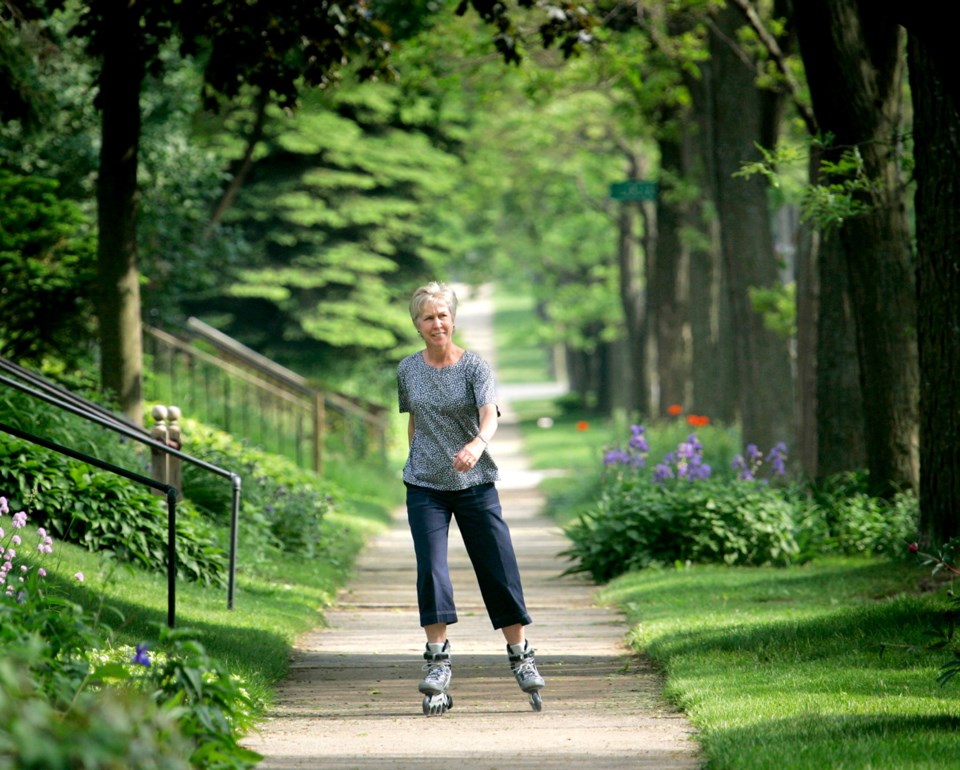SACRAMENTO, California — Karen Spencer was single until she was 48. Like more than 20 per cent of baby-boom generation women — twice the number as in previous generations — she never had children.
The retired political consultant, now 60 and married, has diligently pieced together a long-term care insurance policy, a range of investments and a small pension to make sure her financial needs will be covered in the future.
But the question that concerns her and many of America’s 15 million childless baby boomers is more emotional and poignant: Without offspring to help them, who will take care of them when they grow old?
“I have nieces and nephews who would show up, but I don’t want them to feel like it’s necessary to take care of me,” said Spencer, who lives in Granite Bay, California, with her husband, 68-year-old retired contractor Mike Twigg, and a friendly cast of rescued cats and dogs.
“Either I go into assisted living, or I stay in my home with somebody taking care of me.”
It’s a practical though incomplete answer, because sometimes the complexities of aging alone can be daunting.
For baby boomers who never had kids, who will come over any time, day or night, if the plumbing is broken or a suspicious sound outside frightens them? Who will advocate for them if they’re hospitalized, or if their capacities diminish later in life? Who will call them four or five times a week — as Spencer does her own elderly parents in Southern California — just to say hi?
Whose love and attention, in short, will help keep them anchored in the world?
So far, aging experts don’t have good answers.
“These are issues that we’ll have to grapple with as a country,” said Lynn Feinberg, AARP policy expert on caregiving.
In a real way, facing old age alone is a women’s issue. Well ahead of the aging of the baby boom, U.S. Census figures show that almost 11 million Americans have already lost their spouses — and two-thirds of them are women who outlived husbands requiring months or years of caregiving before death.
Lacking a spouse, they count on their kids and grandkids to help. After all, family caregiving has traditionally been the heart of long-term care, with more than 65 million Americans today providing care to ill or aging relatives.
As Feinberg said: “When somebody needs long-term care, they typically turn to their children.”
But already, 16 per cent of frail adults age 85 and older have no surviving children to help provide their caregiving, according to AARP Public Policy Institute figures. By 2040, when the oldest boomers are in their 90s, that number will reach 21 per cent.
On top of the more than one-fifth of boomers who are childless, census statistics indicate that another 17 per cent had only one child.
That demographic reality leaves experts worrying about the country’s dwindling supply of potential family caregivers in years to come.
“The expectation on a nephew to care for his elderly aunt as well as his own parents and children presents a real challenge,” said Feinberg. “There’s an increasing reliance on fewer family members to take care of older people.”
Even so, both baby boomers and their elders indulge in a rather startling lack of planning for their care needs in old age: A recent Centers for Disease Control study shows that only 37 per cent of older adults who aren’t in nursing homes or hospice care — and only 15 per cent of all adults — have completed legal proxies specifying who can make health-care decisions on their behalf.
“I haven’t made that arrangement with anybody yet,” said Jan Haag, a Sacramento City College professor. “Perhaps it would be my sister, but I haven’t done that. That’s something we need to think about at any age. It’s important.
“I’m embarrassed I haven’t taken care of that.”
At 54, she is widowed and never had children, although she has from time to time taken in young adults whom she calls “loaner kids” — a niece, for example, and the son of friends who, all these years later, still sends her a Mother’s Day card each May.
“I have a great belief that help will be there as I need it,” she said.
Not long ago, a circle of her friends banded together to help another friend — an elderly, childless widow with encroaching dementia — find residential care, she said. Haag’s 81-year-old mother, meanwhile, has set aside funds to assist with her placement in senior living when she can no longer live alone.
“I applaud that,” said Haag. “Please, God, let me have enough money that I can have in-home care or go to a nice facility one day.”
Gerontologist Larry Weiss, founder of Reno’s Center for Healthy Aging, helped care for his mother until her recent death at age 90 in Marin County, California. But he doesn’t have children and he’s divorced, leaving him to wonder what old age will bring to him.
“We have provided care for our elders, but who will take care of us when we age?” said Weiss, 65.
He and other aging experts expect to see more of what Feinberg calls “scenarios like The Golden Girls” TV show, where two or three older adults live together, sharing expenses and caring for one another.
Spencer likes the sound of that, too.
She and a lifelong friend have talked about finding a way to live down the beach from one another in Southern California as they grow older.
“We’ve been friends every decade of our lives since age three,” said Spencer. “She’s somebody who knows me and my history so well.”



